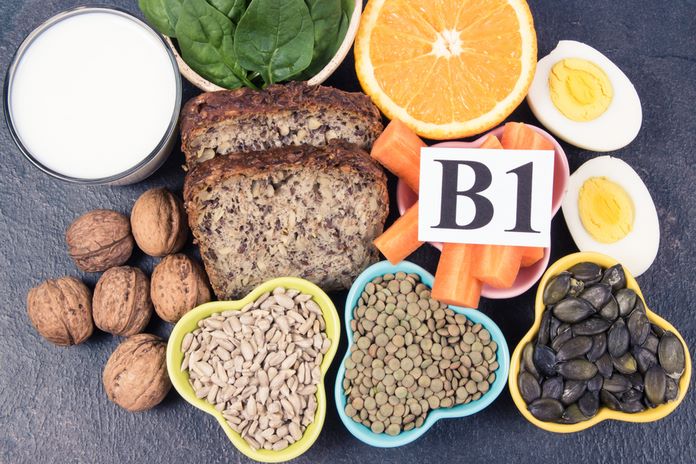Thiamin, Vitamin B1

Thiamin or vitamin B1 helps to transform glucose into energy so that the body can utilize it and has a distinctive role in nerve function.
Some food sources of Vitamin B1:
- Pork
- Yeast
- Nuts
- Seeds (particularly sesame seeds)
- Wheatgerm
- Legumes
- Whole wheat cereal grains
It is mandatory in Australia to fortify the white and whole-meal flour with thiamin in order to make making bread.
Thiamin deficiency
Thiamin deficiency generally occurs in regions where the staple food is white rice. In addition, the Western world suffers from thiamin deficiency typically due to the excessive alcohol intake and a very poor diet. Some symptoms of thiamin deficiency include irritability, confusion, poor coordination, muscle weakness, fatigue and lethargy. Beriberi is a condition that develops due to thiamin deficiency and affects the nervous system, gastrointestinal system, and cardiovascular system. There are further two classifications of beriberi i.e., wet and dry beriberi. Wet beriberi appears to affect the cardiovascular system while the dry beriberi affects the nervous system. Another condition that arises due to thiamin deficiency is known as “wet brain” or Wernicke-Korsakoff syndrome which has a direct link with excessive alcohol and a low vitamin B1 diet. Alcohol tends to increase the excretion of thiamin from the kidneys and also reduces its absorption in the gut.
